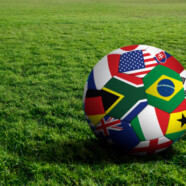
In the past sport was a recreational pastime and it was played for pleasure and, on an international level, for the honour of one’s country. Sportsmen and women took part in sport on a voluntary basis. Times, however, have changed and most major sports are now played at top level on a professional basis. Major sporting stars receive very substantial incomes for plying their trade. Major sports have now become big business and vast sums of money are involved in staging major tournaments.
In the light of the fact that sports, sports events and sportsmen and women have become business enterprises it is not surprising that trade marks and brands have entered into, and become a feature, of the sports environment. Brands manifest themselves in the sporting environment in basically two ways, namely through sponsorships where sponsors of major sporting events, teams and the like use their involvement in order to gain publicity and prestige for their own brands, and through sporting enterprises adopting and promoting their own brands. It has become commonplace for sportsmen and women, sports teams, major event organisers, and even national sporting bodies, to adopt their own brands in order to identify a trade connection between themselves and their enterprises, and to distinguish their sporting manifestations from similar manifestations of others. These brands take the form of word trade marks, often the names of famous individuals, and/or logos which create a visual symbol of the sporting enterprise.
South Africa is very representative of the trends described above and this all came to a head, and was brought into sharp focus, by the 2010 FIFA World Cup held in South Africa. The FIFA World Cup is the world’s major sporting event and the circumstances of this event provide a good example of, and insight into, the role that branding plays in major sports, both generally and more especially in South Africa.
Full Text (Abridged)
This is an abridged version of the article as published in the quarterly Global Sports Law and Taxation Reports, March 2012 (41).
Full Text (GSLTR)




 Follow
Follow

